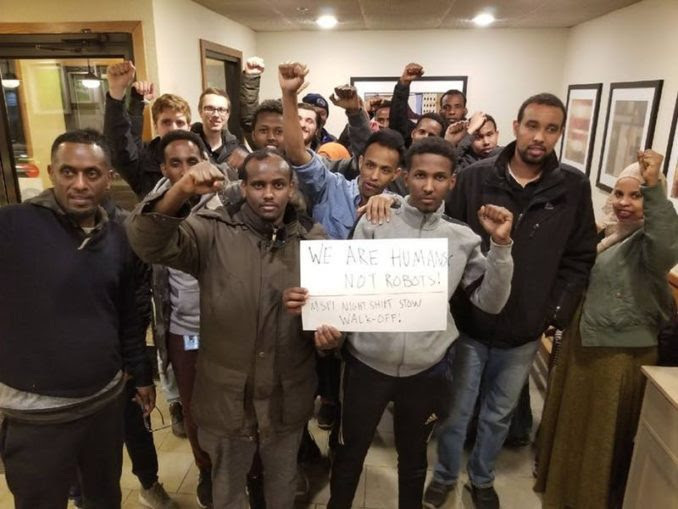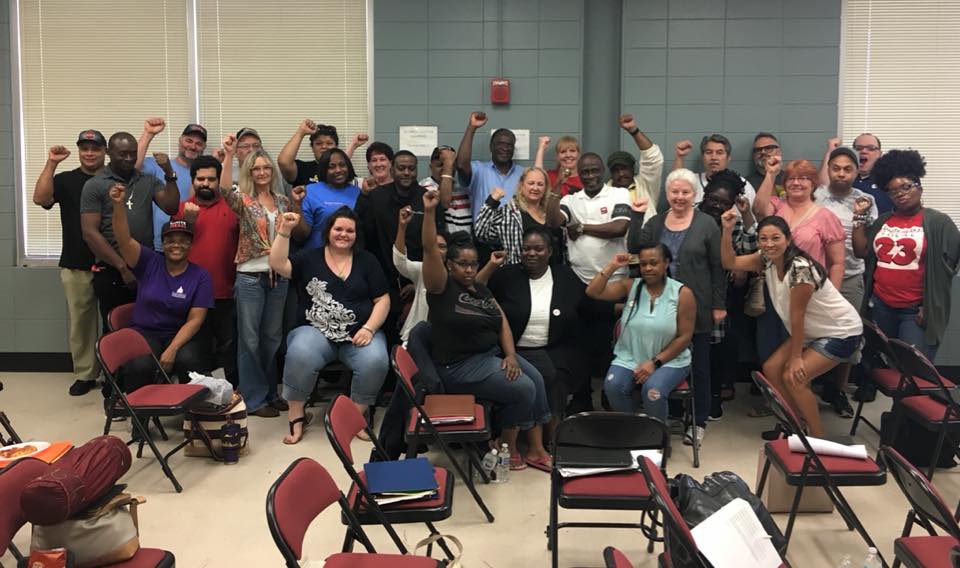
30 Workers at an Amazon fulfillment center in Shakopee, Minnesota, carried out a three-hour work stoppage on March 8 during the night shift. Most are Somali immigrants who face especially high levels of mistreatment because of their religious and immigrant status.
In December, 100 Somali-American workers and supporters marched on the Shakopee fulfillment center. Employee Khadra Hassan, said, “The head of Amazon [Jeff Bezos] doesn’t know who his workers are or what they’re faced with. We are not getting what we need from Amazon.” Hassan nearly lost miscarried her baby when she passed out while lifting heavy boxes in the extreme heat. She says that she was denied services when she reported to Amazon’s health office, because her benefits had not kicked in yet.
During the work stoppage on March 8, a photo uploaded to Facebook went viral. It showed the workers holding up a sign reading, “We are humans, not robots.” The post also listed their complaints against Amazon, including racist promotion practices, outrageous work intensity, lack of language translation services, lack of health benefits, the need for more bathroom visits, and prayer breaks.
Amazon fulfillment center workers in Poland uploaded a video to the internet expressing solidarity, showing the international scope of the workers’ struggle. Last year on “Black Friday”, an estimated 2,400 Amazon workers went on strike across Europe, in Spain, Italy, Germany, and France.
As workers become increasingly linked up through global markets and digital communications systems, the possibilities of international worker coordination become more and more feasible.
Amazon CEO Jeff Bezos, is the richest person in the world, worth an estimated $138 billion. The company’s profits nearly doubled between 2017 and 2018, yet Amazon paid no federal income taxes. All that wealth should go to the working people who actually produce it, and to the betterment of society.. There is no reason that one man should hoard $138 billion dollars, or even a million dollars.

